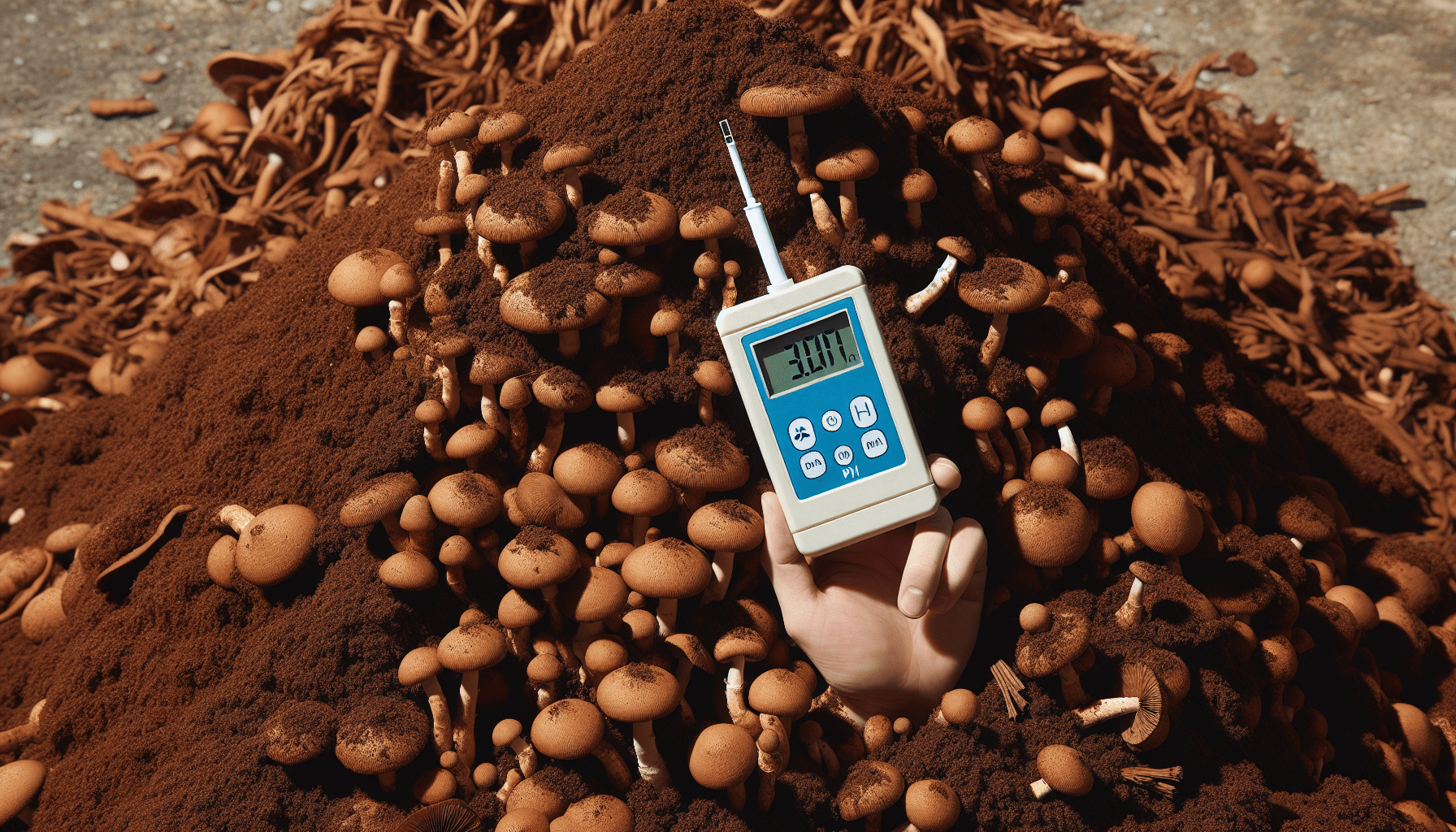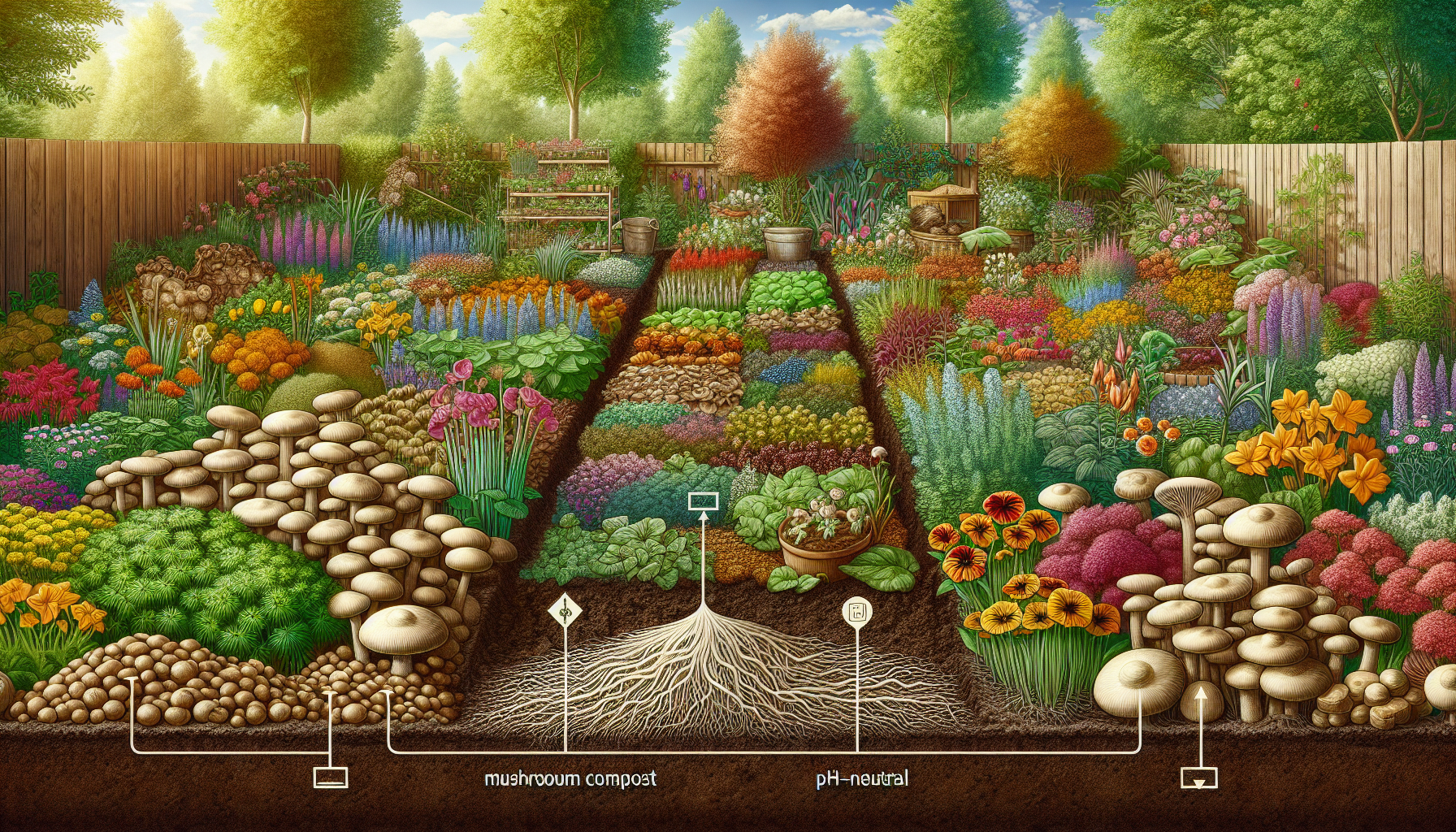You probably have heard about the benefits of using mushroom compost in your garden, but have you ever wondered about its pH level? Well, the answer is quite simple – mushroom compost is almost always pH-neutral. This means that it can be a great option for gardeners looking to improve their soil without worrying about throwing off the balance of acidity and alkalinity. Plus, its rich nutrients make it a fantastic choice for promoting healthy plant growth in your garden. So next time you’re looking for a soil amendment that won’t mess with your pH levels, consider adding some mushroom compost to your gardening routine.
Is Mushroom Compost pH-neutral?
When it comes to gardening and growing plants, ensuring the right pH levels in your soil is crucial for optimal plant growth. Different types of composts can have varying pH levels, which may impact the health and development of your plants. One common question that arises is whether mushroom compost is pH-neutral. Let’s delve into this topic and explore the pH level of mushroom compost.

Understanding pH Levels
Before we discuss whether mushroom compost is pH-neutral, let’s first understand what pH levels are and why they are essential for plant growth. pH is a measure of how acidic or alkaline a substance is, ranging from 0 to 14, with 7 being neutral.
Plants have specific pH requirements for proper nutrient uptake. Most plants prefer a slightly acidic to neutral pH level, around 6 to 7. If the soil is too acidic or too alkaline, it can affect the availability of nutrients in the soil, impacting plant growth and health.
pH Measurement of Mushroom Compost
Mushroom compost is a popular soil amendment used by gardeners and farmers to improve soil fertility and structure. However, the pH levels of mushroom compost can vary depending on the ingredients used in the composting process.
pH Range of Mushroom Compost
The pH level of mushroom compost typically falls within the range of 6.5 to 8.0. This range is considered slightly acidic to slightly alkaline, making it suitable for a wide variety of plants.
Factors Affecting pH Levels
Several factors can influence the pH levels of mushroom compost, including the materials used in the composting process, the composting method, and the age of the compost.
Learn about mushroom composting
Benefits of pH-Neutral Mushroom Compost
While mushroom compost may not always be perfectly pH-neutral, its pH range still offers several benefits for plant growth and soil health.
Nutrient Availability
The slightly acidic to slightly alkaline pH range of mushroom compost allows for better nutrient availability in the soil. This can benefit plants by ensuring they have access to essential nutrients for growth and development.
Soil Structure Improvement
Mushroom compost can help improve soil structure, making it easier for plant roots to penetrate the soil and access water and nutrients. The pH-neutral to slightly alkaline properties of mushroom compost can enhance soil aeration and drainage, creating a healthy environment for plants to thrive.
Microbial Activity
The pH level of mushroom compost can also impact microbial activity in the soil. A pH-neutral to slightly alkaline environment promotes beneficial microbial populations that help break down organic matter and release nutrients for plant uptake.
Adjusting pH Levels in Mushroom Compost
If you find that the pH level of your mushroom compost is outside the ideal range for your plants, there are ways to adjust it to meet your plants’ needs.
pH Testing
Before making any adjustments, it’s essential to test the pH level of your mushroom compost using a pH test kit. This will give you an accurate reading of the pH level and guide you in determining the necessary adjustments.
pH Adjustment Methods
-
Lime: Adding lime to acidic mushroom compost can help raise the pH level, making it more alkaline. Dolomite lime is often recommended for adjusting pH in compost.
-
Sulfur: To lower the pH level of alkaline mushroom compost, you can add sulfur. Elemental sulfur is commonly used to acidify soil and compost.
-
Compost Mix: Mixing acidic or alkaline compost with mushroom compost can help balance the pH levels and create a more neutral environment for your plants.

Tips for Using Mushroom Compost in Your Garden
Now that you understand the pH level of mushroom compost and how to adjust it if needed, here are some tips for using mushroom compost effectively in your garden.
Blending with Other Soil Amendments
To maximize the benefits of mushroom compost, consider blending it with other soil amendments such as peat moss, vermiculite, or perlite. This will create a well-balanced soil mix that provides optimal growing conditions for your plants.
Gradual Incorporation
When adding mushroom compost to your garden, it’s best to do so gradually. Mix small amounts of compost into the soil and observe how your plants respond. This will help prevent over-fertilization and allow you to adjust the pH levels accordingly.
Crop Rotation
To prevent nutrient depletion and maintain soil health, practice crop rotation in your garden beds. By rotating crops and incorporating mushroom compost between planting seasons, you can replenish soil nutrients and promote healthy plant growth.
Conclusion
In conclusion, mushroom compost typically falls within a pH range of 6.5 to 8.0, making it suitable for a wide range of plants. While not always perfectly pH-neutral, mushroom compost offers several benefits for plant growth and soil health. By understanding the pH level of mushroom compost and following the tips provided, you can effectively use this soil amendment to improve your garden’s productivity and vitality.

